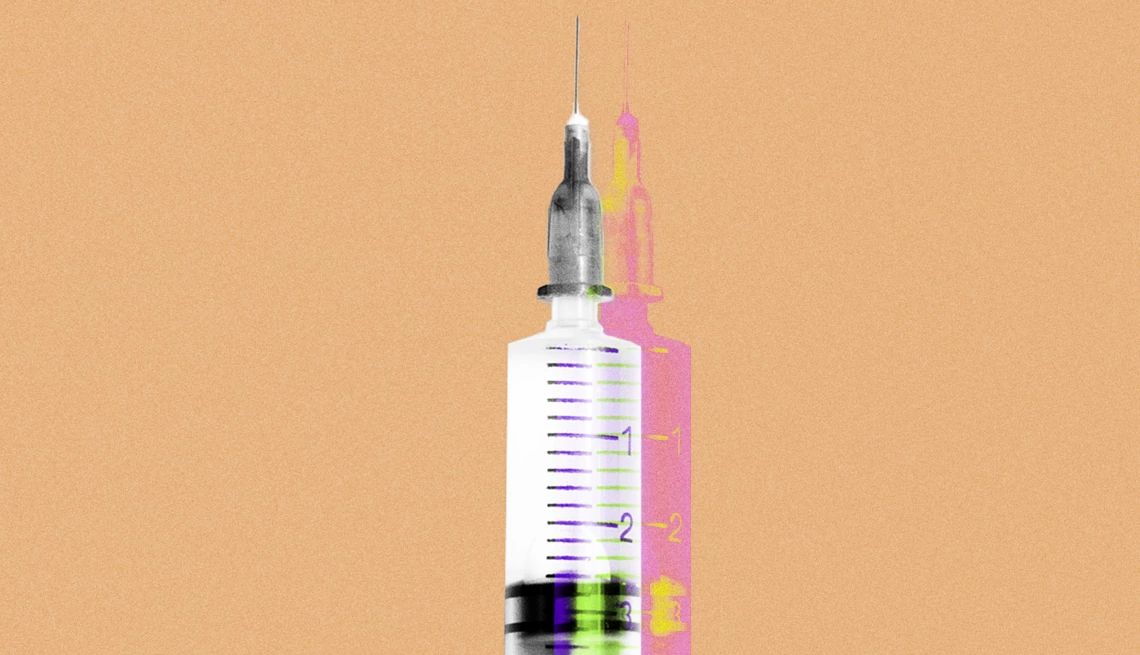
A combo covid-flu vaccine could be here soon
- Select a language for the TTS:
- UK English Female
- UK English Male
- US English Female
- US English Male
- Australian Female
- Australian Male
- Language selected: (auto detect) - EN
Play all audios:

Millions of Americans are making plans this fall to get their flu and COVID vaccines — two separate shots that ramp up the body’s defenses against two different viruses. But pretty soon,
these same people may need only one poke instead of two for the same protection. Vaccine manufacturers are racing to develop a combination vaccine for influenza and COVID-19, and one maker
says its version could be available as early as 2025. In a late-stage clinical trial with thousands of study participants ages 50 and older, individuals who received a combined
coronavirus-influenza shot from Moderna generated a better immune response against flu and COVID-19 than participants who received the individual vaccines. What’s more, the side effects of
the hybrid jab experienced during the phase 3 trial were nothing new, with the most common reactions being injection site pain, fatigue, muscle pain and headache. Pfizer-BioNTech is also
working on a combination vaccine, though the team recently faced a setback when the experimental inoculation failed to meet one of the main goals of a phase 3 clinical trial. In a news
release, Pfizer said “the companies are evaluating adjustments to the candidate and will discuss next steps with health authorities.” Similarly, Novavax, another COVID-19 vaccine
manufacturer, has a combination COVID-flu vaccine that just wrapped phase 2 clinical trials. Further research is currently on hold to investigate "a spontaneous report of a serious
adverse event of motor neuropathy" in a trial participant, Novavax said in an Oct. 16 news release. The company said it does not believe the condition was caused by the vaccine, and
that it hopes to resolve the matter and begin the phase 3 trial "as soon as possible." SINGLE SHOT COULD BOOST VACCINATION RATES Plenty of people have received their flu and COVID
vaccines at the same time — some even in the same arm. Still, health experts are hopeful that combining the two into a single shot will increase the number of people who get vaccinated
against both illnesses. “A lot of times, people just don’t want to get two pokes at the same time, so they schedule one [vaccine] now and then have the intention to come back in a few weeks
and get the second one. And then what happens, if they never get the second one, they just go without that vaccine,” says Ann Philbrick, a pharmacist and associate professor and director of
community engagement in the University of Minnesota College of Pharmacy. A two-in-one shot “might help with completion of getting both of the vaccines,” she adds. William Schaffner, M.D.,
professor of preventive medicine and infectious diseases at Vanderbilt University School of Medicine, says one jab instead of two may also appeal to more people and could potentially boost
the number of individuals getting vaccinated.
